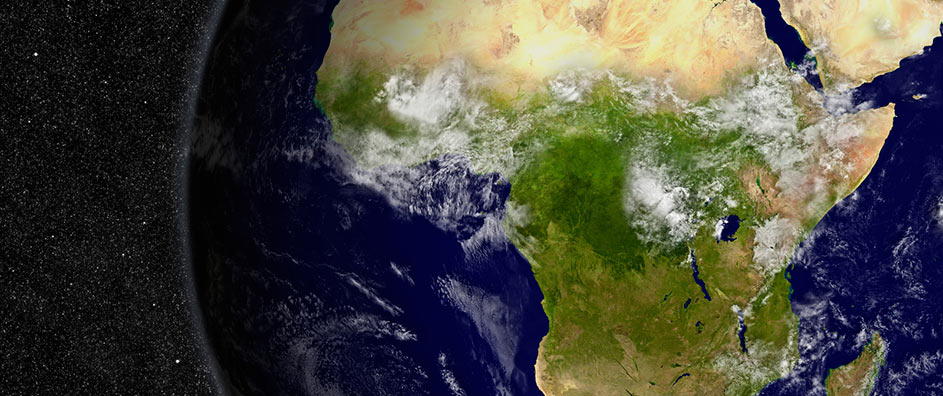As we peer into the kaleidoscope of the future, the year 2063 stands as a beacon, illuminating the potential metamorphoses that await the African continent. The Bahá’í teachings, with their inherent emphasis on global unity, social harmony, and the dignity of all individuals, offer a profound lens through which one can envision the role of Africa on the world stage. This vision is not merely a projection of technological advancements or political transitions; it represents a holistic transformation grounded in spiritual and ethical considerations.
The first aspect to consider is the transformative power of education, encapsulated in the teaching that “the purpose of education is to develop the capacities of each individual.” By 2063, a concerted effort toward universal educational access can yield a populace enriched with knowledge and critical thinking abilities, preparing them for the complexities of an interconnected world. Imagine a landscape where every child—regardless of socio-economic status—has access to quality education. In this envisioned Africa, education flourishes, reminiscent of a garden where each flower blooms in its season. The petals of literacy, numeracy, and ethical reasoning open to the sun of enlightenment, nurturing a generation poised to spearhead innovation.
Furthermore, economic diversification stands as a cornerstone of African revitalization. The Bahá’í teachings advocate for the equitable distribution of wealth, proposing that economic development should not merely serve the elite but must uplift all sectors of society. In 2063, we may witness the emergence of robust industries that are not confined to traditional commodities but expand into technology, sustainable agriculture, and renewable energy. This shift will enable Africa to redefine its global economic identity. As the proverbial phoenix rises from the ashes, so too can Africa re-emerge, resilient and adaptive, transforming perceived limitations into opportunities for growth and exploration.
As the continent evolves, the importance of unity in diversity cannot be overstated. A reflection of this principle can be seen in the myriad cultures, languages, and traditions that constitute the rich tapestry of African society. In the unfolding narrative of 2063, cross-cultural dialogue and mutual respect will serve as the bedrock of national cohesion. Just as a symphony harmonizes disparate sounds into a cohesive melody, the fractious elements of African society will unite, celebrating their identities while recognizing their shared humanity. This communal ethos will facilitate peacebuilding efforts, reducing the specter of conflict that has historically plagued the region.
Moreover, the ecological challenges presented by climate change necessitate a radical rethink of environmental stewardship. The Bahá’í teachings advocate for the protection of the environment, underscoring humanity’s obligation to the planet. By 2063, Africa may emerge as a leader in sustainable practices, harnessing its abundant natural resources not for exploitation, but for regeneration. Consider the lush forests, the sprawling savannas, and the pristine waters, each embodying the lifeblood of the continent. Communities may engage in practices such as agroecology, which aligns agricultural techniques with ecological principles, ensuring food security and environmental health. The earth, regarded as a sacred trust, will flourish once it is tended to with reverence and responsibility.
Importantly, the proliferation of technology presents both challenges and opportunities. By 2063, it is conceivable that African nations will harness technological innovations to address pressing societal issues. The convergence of digital transformation and Bahá’í principles can lead to unprecedented advancements in governance and public service. Imagine a governance model where transparency reigns and citizens are empowered through digital platforms to engage with their leaders meaningfully. This inclusive approach not only builds trust but also fosters a spirit of accountability and mutual aid, leading to a more democratic and just society.
Health care, an essential denominator of human dignity, will require sustained and innovative approaches. Envision a healthcare system in 2063 that capitalizes on advances in telemedicine, ensuring that even the most remote communities have access to quality care. The Bahá’í dedication to the well-being of humanity translates into a health ecosystem where prevention and holistic healing take precedence over mere curative measures. By focusing on mental, emotional, and physical health, communities can thrive in a synergistic manner, paralleling the interconnectedness of body, mind, and spirit.
As exemplified through these multifaceted lenses, the vision for Africa in 2063 is inherently optimistic. It is a vision steeped in the Bahá’í understanding of human potential and collective advancement. The tapestry of an African future woven with threads of education, economic vitality, cultural respect, environmental stewardship, technological innovation, and health care embodies a holistic approach to societal progress. The essence of this future lies in the shared belief that the transformation of society, like the intricate design of an African kente cloth, requires the contributions of every individual. Each thread, while unique, is essential to the beauty and strength of the whole.
In conclusion, the transformation of Africa by 2063 will reflect the very tenets of the Bahá’í teachings, whereby the continent’s citizens will not only strive toward material prosperity but will also embrace their spiritual and moral responsibilities. Just as a seed holds within it the potential of an entire forest, so too does Africa in its quest for a future that is brighter, more equitable, and imbued with the grace of unity and purpose.
